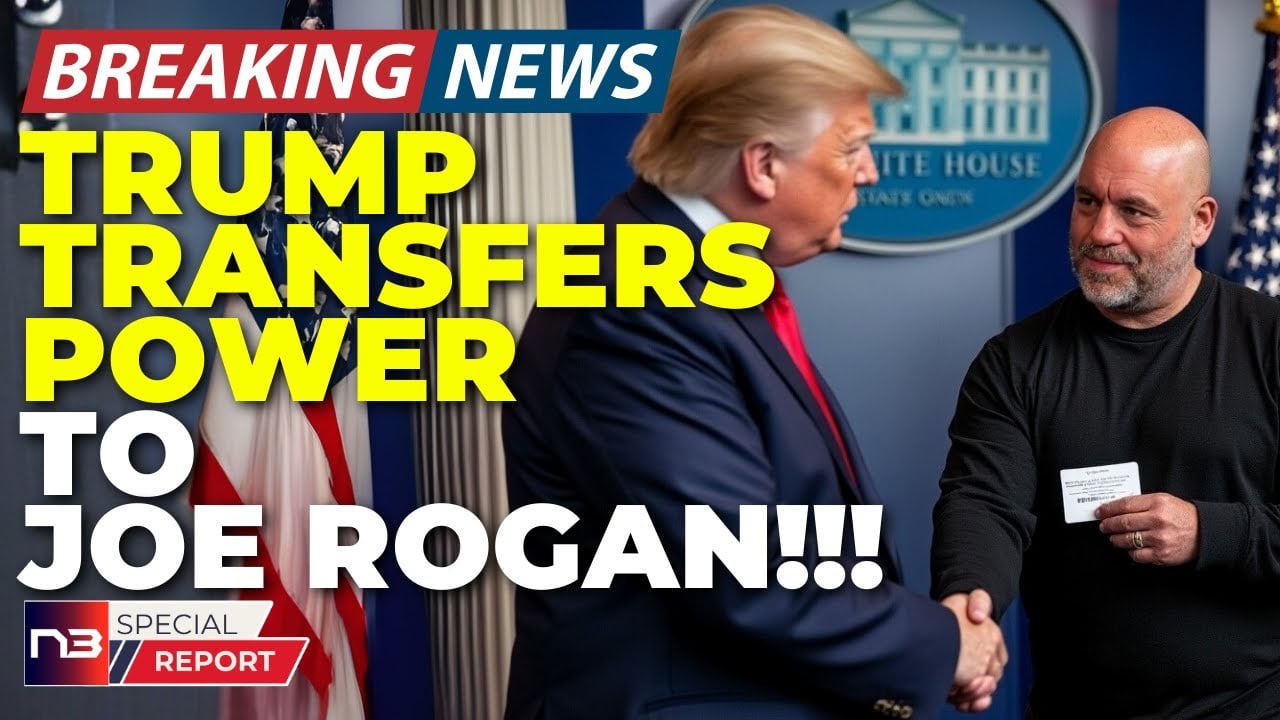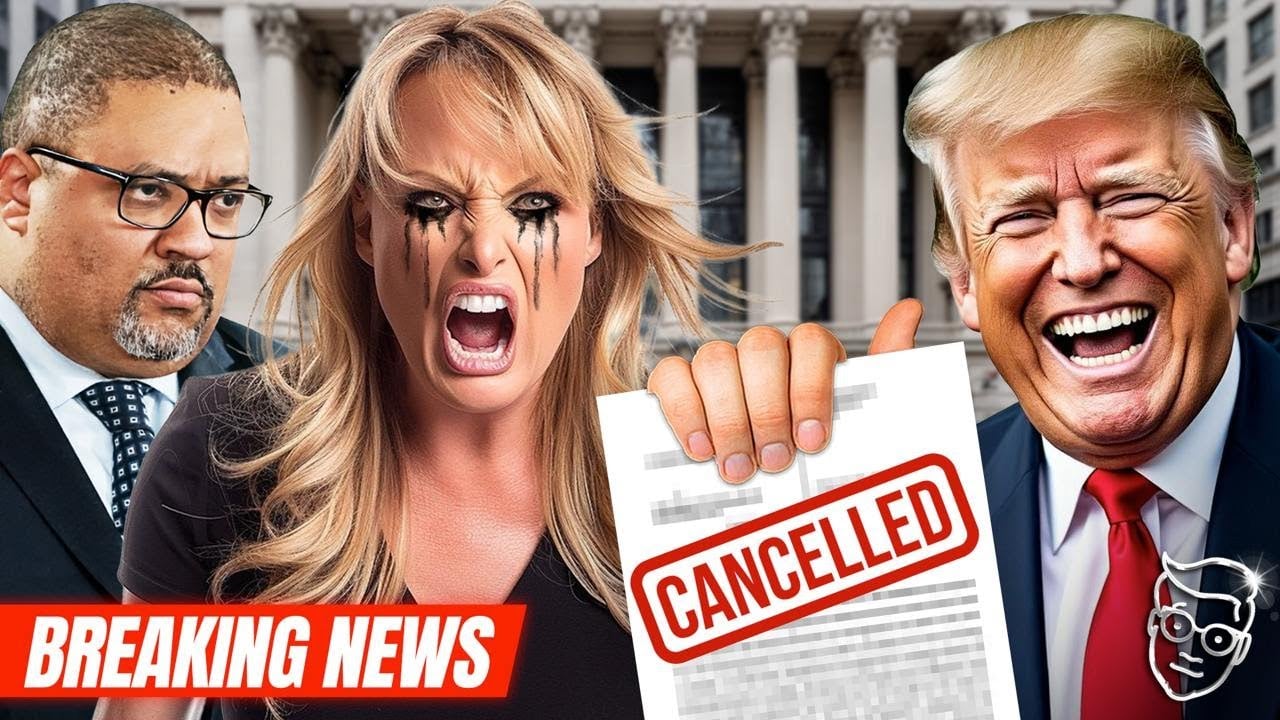Don't call me a Sovereign Citizen!.mp4
Use of the term 'Sovereign Citizen' is problematic. Words have meaning. Get it right or suffer the consequences.
main website - www.lighthouselaw.club
The Complete Solution website; http://www.freedom4all.biz/lawclub/Di...
Lighthouse general newsletter - www.lighthouse.gr8.com
affiliate registration www.affiliates.gr8.com
financial privacy www.financialprivacy.gr8.com
Alternative to banking: www.privatebusiness.biz
Books: www.onefreemanswar.com
Video Workshops: www.vimeo.com/markemery
THE SOVEREIGN CITIZEN HOAX
The purpose of this hoax was to make Americans think that ONLY AN "INDIVIDUAL" IS "SOVEREIGN" and that "WE the PEOPLE", COLLECTIVELY, AS A WHOLE ARE NOT "SOVEREIGN" (exactly backwards to the truth). According to this hoax, the INDIVIDUAL (the pretend "sovereign") is not bound by laws made by representatives that "We the People" (the REAL "sovereign") ELECT to make them. But, none of this is so.
In nations ruled by a King or Queen, the word "SOVEREIGN" means the King or Queen. But, in nations ruled by THE PEOPLE, the word "SOVEREIGN" means ALL OF THE PEOPLE, COLLECTIVELY, AS A WHOLE, not the single "INDIVIDUAL" AS A TINY PART OF THE WHOLE.
This means that here in the United States, "We the People", COLLECTIVELY, AS A WHOLE legally stand in the shoes of the Kings and Queens of yesteryear and we COLLECTIVELY rule ourselves, But here in the United States, no single INDIVIDUAL among us is "SOVEREIGN" and no single INDIVIDUAL among us stands in the shoes of the Kings or Queens of yesteryear and no single INDIVIDUAL can rule anything.
The mistaken belief that the "INDIVIDUAL" is "SOVEREIGN" is the result of amateur legal theorists being unable to distinguish between SINGULAR and PLURAL terms. When they read the phrase, "We the People" (both of which are PLURAL terms), they mistakenly interpret it as the phrase, "I the Person" (both of which are SINGULAR terms). But, this is not so. The phrase, "We the People" refers to ALL OF US, COLLECTIVELY, AS A WHOLE, SPEAKING WITH A SINGLE VOICE THROUGH OUR ELECTED REPRESENTATIVES, not the single INDIVIDUAL speaking individually as a tiny part of the whole.
Likewise, when amateur legal theorists read the phrase, "consent of the governed", they mistakenly think that it refers to a single INDIVIDUAL person (AS IF ONLY ONE INDIVIDUAL IN THE ENTIRE NATION IS "GOVERNED" BY THE GOVERNMENT OF "WE THE PEOPLE"). This is why they mistakenly think that every single INDIVIDUAL in the nation must INDIVIDUALLY "CONSENT" to the law, to the jurisdiction of law enforcement agencies and to the jurisdiction of the courts in order for them to govern that INDIVIDUAL. But, this is not so.
"We the People" (both of which are PLURAL terms) "CONSENT" to our government COLLECTIVELY, AS A WHOLE, THROUGH THE ELECTION PROCESS, not INDIVIDUALLY outside the election process.
U.S. LAW ON WHETHER ALL OF THE PEOPLE, COMBINED, COLLECTIVELY, AS A WHOLE, ARE "SOVEREIGN" OR WHETHER A SINGLE INDIVIDUAL IS SOVEREIGN
1. Medvedieff v. Cities Service Oil Co., CLICK HERE: https://scholar.google.com/sch....olar_case?case=11779
This case reads, "The term`citizen,' as understood in our law, is precisely analogous to the term 'subject' in the common law [when MONARCHS ruled supreme], and the change of phrase [from "subject" to "citizen"] has entirely resulted from the change [in the form] of government [from a "MONARCHY" to a "REPUBLICAN" form of government]. THE SOVEREIGNTY HAS BEEN TRANSFERRED FROM ONE MAN [a "MONARCH"] TO THE COLLECTIVE BODY OF THE PEOPLE [CALLED THE "STATE"] —and HE WHO BEFORE WAS A 'SUBJECT' OF A KING 'IS NOW A CITIZEN OF THE STATE.'" (at the 3rd to last paragraph at about 95% through the text). [CLICK HERE] http://www.duhaime.org/LegalDi....ctionary/S/Sovereign
https://dictionary.cambridge.o....rg/us/dictionary/eng
TRANSLATION: SOVEREIGNTY (THE RIGHT TO RULE) HAS BEEN TRANSFERRED FROM ONE MAN (A "MONARCH") TO THE COLLECTIVE BODY OF THE PEOPLE AS A WHOLE (CALLED THE "STATE") —AND HE WHO BEFORE WAS A "SUBJECT" OF A SOVEREIGN MONARCH IS NOW A CITIZEN OF THE SOVEREIGN "STATE.'"
2. Republic Of Panama v. BCCI Holdings, Inc. CLICK HERE. https://scholar.google.com/sch....olar_case?case=12271 In this case, the court wrote, "The rules of personal jurisdiction protect an INDIVIDUAL'S RIGHTS, NOT A SOVEREIGN'S RIGHTS [drawing a contrast between the rights of an INDIVIDUAL and a SOVEREIGN]." (in the 21st paragraph at about 30 % through the text). Translation: An INDIVIDUAL has entirely DIFFERENT RIGHTS when compared to the rights of a SOVEREIGN. So, a SOVEREIGN cannot logically be an INDIVIDUAL.
3). Lozano v. Bank of America Loans, https://scholar.google.com/sch....olar_case?case=17599
In this case, the plaintiff (an amateur legal theorist) sued a lender and claimed to be "SOVEREIGN". But, the court ruled otherwise and held, "First, SHE [the plaintiff] IS NOT A "SOVEREIGN". A SOVEREIGN IS THE GOVERNMENT, OR THE LEADER OF A GOVERNMENT [a Monarch]. SHE [the plaintiff] IS NEITHER [a government or a leader of a government]." (at the 3rd paragraph at about 40% through the text). TRANSLATION: UNDER U.S. LAW, ONLY "A GOVERNMENT" CAN BE "SOVEREIGN". UNDER U.S. LAW, NO INDIVIDUAL CAN EVER BE "SOVEREIGN" ("A GOVERNMENT").
4). U.S. v. Crawford, https://scholar.google.com/sch....olar_case?case=15454 .. In this case, the court wrote, "Defendant [an amateur legal theorist] asserts in his motion that HE IS A... SOVEREIGN, and as such is ENTITLED TO SOVEREIGN [GOVERNMENTAL] IMMUNITY from prosecution." But, the court ruled otherwise and held, "Defendant... IS NOT A SOVEREIGN [meaning a GOVERNMENT], BUT [IS] AN INDIVIDUAL. As with ANY INDIVIDUAL criminal defendant, Crawford [the INDIVIDUAL defendant] is NOT ENTITLED TO SOVEREIGN [GOVERNMENTAL] IMMUNITY despite his claims to the contrary [because he is NOT a GOVERNMENT]... ." (in the 1st and 2nd paragraphs). TRANSLATION: UNDER U.S. LAW, ONLY "A GOVERNMENT" CAN BE "SOVEREIGN". UNDER U.S. LAW, NO INDIVIDUAL CAN EVER BE "SOVEREIGN" ("A GOVERNMENT").
5). U.S. v. Cooper Corp., https://scholar.google.com/sch....olar_case?case=17884 (HOLDING THAT ONLY THE UNITED STATES AND THE INDIVIDUAL STATES ARE "SOVEREIGN"). In this case, the court held, "It is fundamental that THE UNITED STATES EXISTS AS A SOVEREIGN of delegated powers; DELEGATED TO IT BY THE "SOVEREIGNS" MAKING UP THE UNITED STATES, THE INDIVIDUAL STATES [not individual human beings]." (in the 3rd to last paragraph at 95% through the case). (in the 3rd to last paragraph of this case). TRANSLATION: UNDER U.S. LAW, ONLY "A GOVERNMENT" CAN BE "SOVEREIGN". UNDER U.S. LAW, NO INDIVIDUAL CAN EVER BE "SOVEREIGN" ("A GOVERNMENT").
6). Chisolm v. Georgia, https://scholar.google.com/sch....olar_case?case=17884 (HOLDING THAT ONLY THE STATES AND THE UNITED STATES ARE SOVEREIGN). The court wrote, "EVERY STATE IN THE UNION in every instance where ITS SOVEREIGNTY has NOT been delegated to THE UNITED STATES, [IS]... COMPLETELY SOVEREIGN, AS THE UNITED STATES ARE [SOVEREIGN] IN RESPECT TO THE POWERS SURRENDERED [TO THEM BY THE STATES]. THE UNITED STATES ARE SOVEREIGN AS TO ALL POWERS OF GOVERNMENT ACTUALLY SURRENDERED [TO THEM BY THE STATES]: EACH STATE IN THE UNION IS SOVEREIGN AS TO ALL POWERS RESERVED. " (at the 14th paragraph at about 15% through the text). TRANSLATION: UNDER U.S. LAW, ONLY "A GOVERNMENT" CAN BE "SOVEREIGN". UNDER U.S. LAW, NO INDIVIDUAL CAN EVER BE "SOVEREIGN" ("A GOVERNMENT").
7). Parker v. Brown, https://scholar.google.com/sch....olar_case?case=69414
(HOLDING THAT STATES ARE SOVEREIGN). The court wrote, "Under the Constitution, THE STATES ARE SOVEREIGN, SAVE ONLY [means "EXCEPT"] AS CONGRESS MAY CONSTITUTIONALLY [under Article 1, Section 8] SUBTRACT FROM THEIR AUTHORITY [their SOVEREIGNTY]." (at the 16th full paragraph at about 30% through the text). TRANSLATION: UNDER U.S. LAW, ONLY "A GOVERNMENT" CAN BE "SOVEREIGN". UNDER U.S. LAW, NO INDIVIDUAL CAN EVER BE "SOVEREIGN" ("A GOVERNMENT").
8). Feldman v. Gardner, https://scholar.google.com/sch....olar_case?case=50564 (HOLDING THAT THE STATES ARE SOVEREIGN). The court wrote, "Inherent in our system of government is the concept of DUAL [meaning FEDERAL and STATE] SOVEREIGNTY; EACH STATE IS SOVEREIGN, except to the extent that ITS SOVEREIGNTY is curtailed by the [United States] Constitution or validly restricted by Congress [as set forth in Article 1, Section 8]." (at the 1st paragraph in "Section B" at about 30% through the text). TRANSLATION: UNDER U.S. LAW, ONLY "A GOVERNMENT" CAN BE "SOVEREIGN". UNDER U.S. LAW, NO INDIVIDUAL CAN EVER BE "SOVEREIGN" ("A GOVERNMENT").
9). Dred Scott v. Sandford (rev'd other grounds) https://scholar.google.com/sch....olar_case?case=32313
In this case, the Chief Justice of The United States Supreme Court held that the terms "SOVEREIGN" and "SOVEREIGNTY" refer ONLY to "We the People" COLLECTIVELY in the form of the GOVERNMENT and NOT TO INDIVIDUALS. He wrote, "The words 'people [a PLURAL term] of the United States' and 'citizens' [a PLURAL term] are synonymous terms, and mean the same thing. They both describe THE POLITICAL BODY [a SINGULAR term] who, according to our republican institutions, FORM THE SOVEREIGN [MEANING FORM THE GOVERNMENT], and who [COLLECTIVELY] hold the power and conduct the Government THROUGH THEIR [A PLURAL TERM] [ELECTED] REPRESENTATIVES [meaning the SOVEREIGNTY of "We the People" is exercised COLLECTIVELY through our ELECTED REPRESENTATIVES, not INDIVIDUALLY], They [a PLURAL term] are what we familiarly call the "SOVEREIGN PEOPLE [a PLURAL term]," and every [INDIVIDUAL] citizen is ONE of this [SOVEREIGN GROUP OF] PEOPLE [a PLURAL term], and a constituent member of this SOVEREIGNTY [the GOVERNMENT of "We the People" COLLECTIVELY]." (at the 24th paragraph at about 5% through the text). TRANSLATION: UNDER U.S. LAW, ONLY "A GOVERNMENT" CAN BE "SOVEREIGN". UNDER U.S. LAW, NO INDIVIDUAL CAN EVER BE "SOVEREIGN" ("A GOVERNMENT").
DEFINITION OF "SOVEREIGN":
http://www.duhaime.org/LegalDi....ctionary/S/Sovereign
https://dictionary.cambridge.o....rg/us/dictionary/eng
Here in the United States, "We the People" exercise our "SOVEREIGNTY" COLLECTIVELY (NOT INDIVIDUALLY) through our VOTES. ---Thomas Jefferson (see below)
Thus, "We (a PLURAL term) the People (also a PLURAL term)" exercise our "SOVEREIGNTY" (COLLECTIVELY, not INDIVIDUALLY) through our ELECTIONS.
Jenkins v. Williamson-Butler, https://scholar.google.com/sch....olar_case?case=24591
The court quoted Thomas Jefferson and wrote, "IT IS BY THEIR [a PLURAL term] VOTES [also a PLURAL term] THAT THE PEOPLE [also a PLURAL term] EXERCISE THEIR [also a PLURAL term] SOVEREIGNTY [AND NOT BY ANY OTHER MEANS]. ---Thomas Jefferson." (at the 12th paragraph, not including block indented portions, at about 60% through the text). TRANSLATION: UNDER U.S. LAW, ONLY "WE THE PEOPLE" COLLECTIVELY IN THE FORM OF "THE GOVERNMENT" CAN BE "SOVEREIGN". UNDER U.S. LAW, NO INDIVIDUAL ACTING OUTSIDE THE GOVERNMENT CAN EVER BE "SOVEREIGN" ("A GOVERNMENT").
Note that the term "the governed' (below) IS ALSO A PLURAL TERM (not an INDIVIDUAL term).
https://www.dictionary.com/bro....wse/consent-of-the-g
U.S. THE LAW ON WHETHER AN "INDIVIDUAL" CAN BE "SOVEREIGN" AND THEREBY AVOID BEING BOUND BY THE LAWS OF "WE THE PEOPLE":
1. U.S. v. Benabe,https://scholar.google.com/sch....olar_case?case=20117 In this case, several defendants (all of whom were amateur legal theorists) falsely claimed to be "SOVEREIGN" and therefore claimed that they were not subject to the court's jurisdiction. But, the court held otherwise and wrote, "We [the courts] have REPEATEDLY REJECTED their theories of INDIVIDUAL [rather than collective] SOVEREIGNTY, immunity from prosecution, and their ilk." (citations omitted). The court then cited a number of other decisions with approval which. " ... REJECT[ED] the 'shop worn' argument that a[n] [INDIVIDUAL] DEFENDANT IS A SOVEREIGN [a GOVERNMENT] and is beyond the jurisdiction bounds of the district court. (citation omitted)... [and another case] describing defendant's proposed 'SOVEREIGN CITIZEN defense as having 'NO CONCEIVABLE VALIDITY IN AMERICAN LAW' (citation omitted)... [and another case] DISMISSING [SOVEREIGN CITIZEN] jurisdiction arguments as FRIVOLOUS... ." In the case at bar, the court held, "Regardless of an INDIVIDUAL'S claimed status of descent, be it as a 'SOVEREIGN CITIZEN,' a 'secured-party creditor,' or a 'flesh-and-blood human being [rather than a corporate fiction],' THAT [INDIVIDUAL] PERSON IS NOT BEYOND THE JURISDICTION OF THE COURTS. These [amateur legal] theories SHOULD BE REJECTED summarily [means "without any delay"], however they are presented." (at paragraph 23 at about 50% through the text). TRANSLATION: Claiming to be "SOVEREIGN" ("a GOVERNMENT") WILL NOT BENEFIT YOU IN ANY WAY IN ANY TYPE OF CASE IN ANY TYPE OF COURT. This is because under U.S. law, no INDIVIDUAL is a GOVERNMENT (a "SOVEREIGN").
2. Williams v, Georgia Dept. Of Corrections, https://scholar.google.com/sch....olar_case?case=16993 In this case, the court wrote, "[The Plaintiff's]... claims are brought under a 'SOVEREIGN CITIZEN' [amateur legal] theory. THIS IS A FRIVOLOUS [AMATEUR LEGAL] LEGAL THEORY THAT IS CONSISTENTLY REJECTED BY... [THE] COURTS [read this phrase again]." (citations omitted). The court went on to cite the holdings of other courts in support, "The ... [amateur legal] theories of `SOVEREIGN CITIZENS' are NOT ESTABLISHED LAW IN THIS COURT OR ANYWHERE IN THIS COUNTRY'S VALID LEGAL SYSTEM (citations omitted)... [and another decision] finding the SOVEREIGN CITIZEN argument to be to 'WHOLLY INSUBSTANTIAL AND FRIVOLOUS' (citation omitted)... [and another decision which] REJECT[ED] THE SOVEREIGN CITIZEN ARGUMENT as 'SHOP WORN' and FRIVOLOUS.'" In the case at bar, the court held, "The Court [referring to itself] therefore finds that [the Plaintiff's SOVEREIGN CITIZEN]... LEGAL THEORY is also 'INDISPUTABLY MERITLESS' [read this phrase again]." (at paragraph 8 in this case at about 90% through the text). TRANSLATION: Claiming to be "SOVEREIGN" ("a GOVERNMENT") WILL NOT BENEFIT YOU IN ANY WAY IN ANY TYPE OF CASE IN ANY COURT. This is because under U.S. law, no INDIVIDUAL is a GOVERNMENT (a "SOVEREIGN").
3. Paul v. State Of New York, https://scholar.google.com/sch....olar_case?case=16820 This case reads, "It is clear [that the Plaintiff]... is an adherent of the 'SOVEREIGN CITIZENS' movement (citations omitted) which the Second Circuit has described as 'a loosely affiliated group who [mistakenly] believe that the state and federal governments [of "We the People"] lack constitutional legitimacy and therefore have no authority to regulate their behavior.'" (citations omitted)... . The court cited other cases with approval and continued, "So-called SOVEREIGN CITIZENS [mistakenly] believe that they are not subject to government authority [of "We the People"] and [UNSUCCESSFULLY] employ various tactics in an attempt to, among other things, avoid paying taxes, extinguish debts, and derail criminal proceedings. (citation omitted). The `SOVEREIGN CITIZEN MOVEMENT' is well documented. The Federal Bureau of Investigation has classified `SOVEREIGN CITIZENS' as domestic terror threats BECAUSE THEY ARE ANTI-GOVERNMENT [of "We the People"] EXTREMISTS... ." In the case at bar, the court wrote, "The gravamen [core of] of plaintiff's amended complaint is that as a SOVEREIGN CITIZEN, he is not subject to the jurisdiction of the ... courts... . [But] contrary to plaintiff's contentions, 'SOVEREIGN CITIZENS,' like ALL... [INDIVIDUALS in] the United States, ARE SUBJECT TO THE LAWS OF THE JURISDICTION IN WHICH THEY [FIND THEMSELVES]... ." (citations omitted). The court cited other decisions with approval which found "similar [SOVEREIGN CITIZEN] claims by Moorish Nationals... [to the effect] that they are not subject to... state laws, to be 'MERITLESS'. Plaintiff's purported [means "pretended"] status as a 'SOVEREIGN CITIZEN' 'does NOT enable him to violate state and federal laws [of "We the People"] without consequence.'" (citations omitted). Since... plaintiff's factual allegations in the amended complaint are CLEARLY BASELESS, and "[t]he conspiracy and legal revisionist [amateur legal] theories of 'SOVEREIGN CITIZENS' are NOT ESTABLISHED LAW IN THIS COURT OR ANYWHERE IN THIS COUNTRY'S VALID LEGAL SYSTEM,"... , plaintiff's amended complaint is both FACTUALLY AND LEGALLY FRIVOLOUS. Accordingly, the amended complaint is sua sponte [means "on the court's own motion"] DISMISSED AS FRIVOLOUS." (at paragraph 10 at about 75% through the text of the case.). TRANSLATION: Claiming to be "SOVEREIGN" ("a GOVERNMENT") WILL NOT BENEFIT YOU IN ANY WAY IN ANY TYPE OF CASE IN ANY COURT. This is because under U.S. law, no INDIVIDUAL is a GOVERNMENT (a "SOVEREIGN").
4. Frye v. Barbour, https://scholar.google.com/sch....olar_case?case=15135 In this case, an amateur legal theorist unsuccessfully sued various government officials who he mistakenly blamed for his many criminal convictions and incarcerations. The court wrote, "[The]... Plaintiff [claims]... that this court lacks jurisdiction over him [because]... he is a SOVEREIGN CITIZEN, not subject to the laws of the United States of America... . However, the courts that have [already] considered such 'SOVEREIGN' CITIZEN' claims have found them to be FRIVOLOUS." The court cited other decisions is support which held, "[C]ourts ROUTINELY REJECT "SOVEREIGN CITIZEN' claims as FRIVOLOUS. (citation omitted). 'Regardless of an individual's claimed status of descent, be it as a `SOVEREIGN CITIZEN' , a `secured-party creditor,' or a `flesh-and-blood human being [rather than as a corporate fiction],' that person is not beyond the jurisdiction of the courts. These [amateur legal] theories SHOULD BE REJECTED summarily, however they are presented.' (citation omitted). '[S]OVEREIGN CITIZEN claims are WHOLLY FRIVOLOUS [read that phrase again].'" (at the 12th paragraph, not including block indented portions, at about 85% through the text). TRANSLATION: Claiming to be "SOVEREIGN" ("a GOVERNMENT") WILL NOT BENEFIT YOU IN ANY WAY IN ANY TYPE OF CASE IN ANY COURT. This is because under U.S. law, no INDIVIDUAL is a GOVERNMENT (a "SOVEREIGN").
5. Dudley v. Eggert, https://scholar.google.com/sch....olar_case?case=14826 In this case, an amateur legal theorist unsuccessfully sued a government official for "seeking to incarcerate a SOVEREIGN and NATURAL FREE-MAN of the land [referring to himself] and extort [his] money without a contract threatening [his] liberty [as if a contract were necessary]." The court held that "[courts have]... "REPEATEDLY REJECTED... [such amateur legal] theories of INDIVIDUAL [rather than collective] SOVEREIGNTY, immunity from prosecution, and their ilk." (citation omitted). SOVEREIGN CITIZEN [amateur legal] theories are typically raised by defendants in criminal prosecutions or by tax protesters, but courts in this Circuit HAVE [ALSO] SUMMARILY REJECTED THEM in other contexts as well. (citation omitted). The court cited another case in support which "REJECT[ED] the plaintiff's SOVEREIGN CITIZEN challenge to state child support proceedings as "SHOP WORN" and "FRIVOLOUS." (at the 3rd to last paragraph at about 85% through the text). TRANSLATION: Claiming to be "SOVEREIGN" ("a GOVERNMENT") WILL NOT BENEFIT YOU IN ANY WAY IN ANY TYPE OF CASE IN ANY COURT. This is because under U.S. law, no INDIVIDUAL is a GOVERNMENT (a "SOVEREIGN").
6. Hoglund v. Indiana, https://scholar.google.com/sch....olar_case?case=13511 In this case, a prisoner (and amateur legal theorist) unsuccessfully sued various state agencies and officials for imaginary misconduct that he mistakenly claimed resulted in his convictions. He alleged that government officials created laws "meant to control the people a as [fictional] legal entities, but not the SOVEREIGN man [referring to himself]... ." But, the court held otherwise and wrote, "The court of appeals has "REPEATEDLY REJECTED... [amateur legal] theories of INDIVIDUAL [rather than collective] SOVEREIGNTY, immunity from prosecution, and their ilk." (citation omitted). Even if an individual claims the status of "a `SOVEREIGN CITIZEN,' a `secured-party creditor,' or a `flesh-and-blood human being,' that person is not beyond the jurisdiction of the courts. These [amateur legal] theories SHOULD BE REJECTED summarily, however they are presented." (citation omitted). The court also cited another case in support which "describe[d] defendant's 'SOVEREIGN CITIZEN' defense as having "NO CONCEIVABLE VALIDITY IN AMERICAN LAW.'" The court ruled, "Because all three of Plaintiff's claims rest on his [amateur legal] theories of SOVEREIGN CITIZENSHIP, this complaint must be DISMISSED AS FRIVOLOUS." (at the 3rd and 4th paragraph at about 85% through the text). TRANSLATION: Claiming to be "SOVEREIGN" ("a GOVERNMENT") WILL NOT BENEFIT YOU IN ANY WAY IN ANY TYPE OF CASE IN ANY COURT. This is because under U.S. law, no INDIVIDUAL is a GOVERNMENT (a "SOVEREIGN").
7. U.S. v. Johnson, https://scholar.google.com/sch....olar_case?case=12617 In this case, the Defendant was charged with filing a fraudulent lien against a federal employee. The Defendant filed a motion to dismiss the charges and claimed to be "a SOVEREIGN CITIZEN" and thus [claimed] the court ha[d] no jurisdiction over him." But the court held otherwise and wrote, "[T]he Seventh Circuit HAS READILY REJECTED such arguments alleging the SOVEREIGNTY OF [INDIVIDUAL] CITIZENS, finding such arguments to be FRIVOLOUS." (citation omitted). The court also cited other cases in support, one of which, "REJECT[ED] the 'SHOP WORN' argument that a defendant is a SOVEREIGN ["a GOVERNMENT"] and is beyond the jurisdiction bounds of the district court'... [and another case which] "DISMISS[ED] lack of personal jurisdiction.... argument as FRIVOLO In this case, the Defendant was convicted and sentenced to prison for five years for mailing a threatening letter to a judge (just like Rod Class routinely does). His sole defense to the charges was that "he is a FREE, SOVEREIGN CITIZEN and as such not subject to the jurisdiction of the federal courts." But, the court disagreed and wrote, "[T]hat defense has NO CONCEIVABLE VALIDITY IN AMERICAN LAW... ." (at the 2nd paragraph at about 40% through the text). TRANSLATION: Claiming to be "SOVEREIGN" ("a GOVERNMENT") WILL NOT BENEFIT YOU IN ANY WAY IN ANY TYPE OF CASE IN ANY COURT. This is because under U.S. law, no INDIVIDUAL is a GOVERNMENT (a "SOVEREIGN").
9. Bey v. Indiana, https://scholar.google.com/sch....olar_case?case=28950 In this case, an amateur legal theorist sued the state to stop it from taxing his real property. This case reads, "Bey says he's a 'SOVEREIGN CITIZEN' and therefore can't lawfully be taxed by Indiana or its subdivisions in the absence of a contract between them and him [as if a contract was necessary]." (citations omitted). But, the court wrote, "We have REPEATEDLY REJECTED such claims. (citations omitted). We do so [REJECT SUCH CLAIMS] in this case as well... ." (at the 2nd paragraph at about 35% through the text). TRANSLATION: Claiming to be "SOVEREIGN" ("a GOVERNMENT") WILL NOT BENEFIT YOU IN ANY WAY IN ANY TYPE OF CASE IN ANY COURT. This is because under U.S. law, no INDIVIDUAL is a GOVERNMENT (a "SOVEREIGN").
10. Osoria v. Connecticut" https://scholar.google.com/sch....olar_case?case=80669 In this case, an amateur legal theorist who was convicted for sexually molesting a child sued the state that convicted and imprisoned him. The court wrote, "... Plaintiff's complaint MUST BE DISMISSED as... FAILING TO STATE A PLAUSIBLE CLAIM... and AS "FRIVOLOUS"... because it is based on an "INDISPUTABLY MERITLESS LEGAL THEORY [referring to SOVEREIGN CITIZEN THEORY]. (citation omitted). Given the language of Plaintiff's Complaint — declaring himself a "real flesh and blood man," "a natural born, free, living, breathing, flesh and blood human with SENTIENT and more existence... upon the soil, and "the living man,"... Plaintiff appears to consider himself a 'SOVEREIGN CITIZEN'... . Numerous Circuits have ... REJECTED [the]... underlying premise [of SOVEREIGN CITIZENS to the effect] that federal courts lack jurisdiction over all 'LIVING MEN.'" (citations omitted). In support, the court cited a number of holdings from other cases as follows, "[T]o the extent that the plaintiff argues that he is a SOVEREIGN CITIZEN and not subject to... [state] laws, [such an argument is]`WHOLLY INSUBSTANTIAL AND FRIVOLOUS.' (citations omitted). Defendants claiming to be 'SOVEREIGN CITIZENS' assert that the federal government [of "We the People"] is illegitimate and insist that they are not subject to its jurisdiction. [But] [t]he [SOVEREIGN CITIZEN] defense has `NO CONCEIVABLE VALIDITY IN AMERICAN LAW.'... ." The court then wrote, "[Federal and state courts]... have SIMILARLY DISMISSED "SOVEREIGN CITIZEN" claims." Then, in citing those other courts, the court wrote, "... [A]rguments common to the "SOVEREIGN CITIZEN" movement[]... have been CONSISTENTLY REJECTED by federal courts." (citation omitted). The court then cited another case which held, "This Court adds its voice TO THE JUDICIAL CHORUS [means hundreds of other courts] REJECTING, AS LEGALLY UNSUPPORTABLE, SOVEREIGN-CITIZEN-BASED challenges to federal law." (citation omitted). The court cited another case which held, "The`SOVEREIGN CITIZEN' BELIEF SYSTEM has been described by other courts as `COMPLETELY WITHOUT MERIT, 'PATENTLY FRIVOLOUS', and HAVING 'NO CONCEIVABLE VALIDITY IN AMERICAN LAW. (citations omitted)... ." In the case at bar, the court wrote, "[t]he crux of Osorio's Complaint is that [courts]... have no 'jurisdiction over living men.' [He argues that]... because... SOVEREIGN [CITIZENS]... are not named in the codes, [they]... are not subject to the codes... . He explicitly asserts that he, the "Secured Party/Plaintiff is not a subject of, or to . . . the United States Constitution, its Ordinances, Statutes, Codes, or Regulations... . Because Plaintiff's claims are ALL PREMISED on this "SOVEREIGN CITIZEN"... theory, THEY [ALL] FAIL TO STATE A PLAUSIBLE CLAIM UPON WHICH RELIEF CAN BE GRANTED. (citation omitted).Accordingly, they [the Plaintiff's claims] are "FRIVOLOUS" and WILL BE DISMISSED... ." (at the 25th, 26th, and 27th paragraph beginning at about 75% through the text, and at the 2nd to LAST paragraph at about 95% through the text). TRANSLATION: Claiming to be "SOVEREIGN" ("a GOVERNMENT") WILL NOT BENEFIT YOU IN ANY WAY IN ANY TYPE OF CASE IN ANY COURT. This is because under U.S. law, no INDIVIDUAL is a GOVERNMENT (a "SOVEREIGN").




















